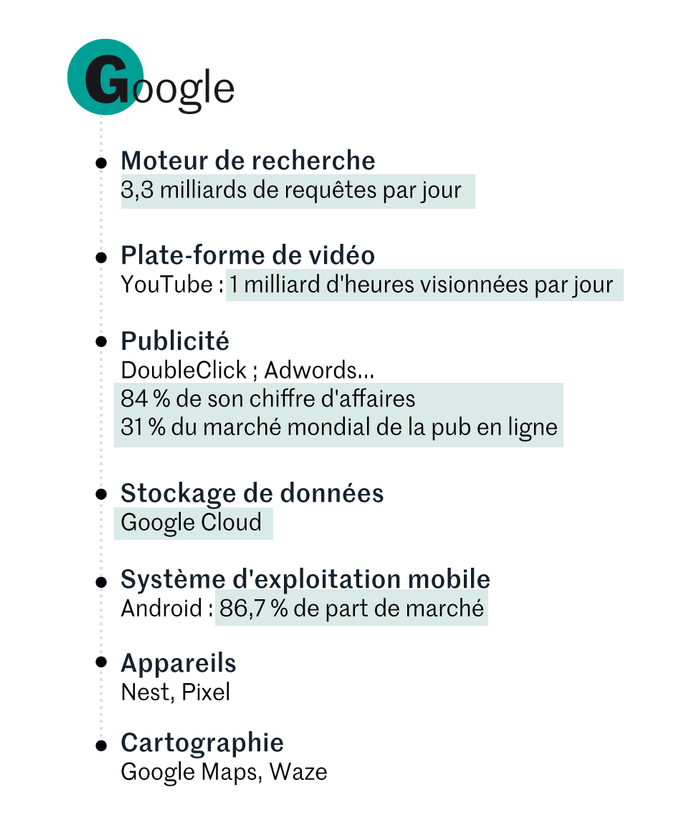From Washington to Silicon Valley, calls to "break" Google, Amazon, Facebook and Apple are multiplying. But such a division raises many legal, political … and practical questions.
Subscribers article

"Break them up! ", "Dismantle them" : the password is spreading. If the European Union (EU) imposed the American digital giants with record fines, in the United States, it is the very idea of "breaking" these companies that is on the table.
Unthinkable a few years ago, this assumption is gaining ground in the political class, from President Donald Trump to Massachusetts Senator Elizabeth Warren, who is on the rise in the Democratic primary for the 2020 presidential election.
The criticism of the power of the GAFA (Google, Apple, Facebook and Amazon) – they weigh on the stock market 3,360 billion dollars or 3,011 billion euros and achieve 600 billion dollars in turnover – is one of the few topics of consensus left and right in the United States. Even in Silicon Valley, some, like Facebook co-founder Chris Hughes, are also calling for "dismantling".
Their arguments? Google, Facebook and Amazon abuse their dominance in online advertising, Amazon's supremacy in e-commerce and Apple's control over its application store. And these companies, by buying back their competitors, like Facebook did with Instagram and WhatsApp, are hurting innovation.
It remains to be seen whether this radical solution, which is not unanimous, is possible.

"Heavy and expensive"
"Cutting large companies is quite feasible. The history of the United States has proved it. But it often turns out to be harder to implement than you think warns William Kovacic, a former FTC (Federal Trade Commission) competition authority. And this professor at Georgetown University in Washington, to equate this operation with "Heavy surgery".
Impose a "Structural separation" is "Extremely heavy and expensive", what makes the results "Uncertain" adds Winston Maxwell, director of law and digital studies at Telecom Paris-Institut Polytechnique de Paris. "It makes sense in an industry with a well-identified infrastructure layer, like rail in the railways or copper in the telecom. In the digital world, it's less obvious, says ex-lawyer in the technology sector for Hogan Lovells.



